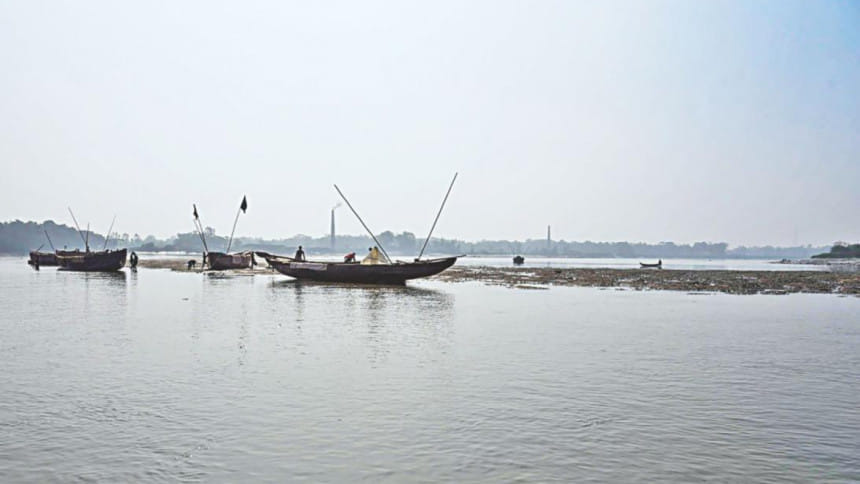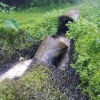Halda River pollution getting worse

A recent report by the Department of Environment (DoE) states that the discharge of industrial effluents into the Halda River is causing depletion of fish stocks. Halda River is vitally important because we are told that it is the only place in the country where naturally-laid carp eggs can be gathered for hatching. Unfortunately, DoE's probe has found that a number of industries are directly responsible for polluting the river. This probe was conducted back in 2017 and two years on, we find that no effective steps have been taken to take the polluters to task. With some 18 canals connected to the Halda River, the pollution has spread and despite being armed with detailed laboratory tests, we cannot understand what is holding up authorities from acting to save the river from destruction.
Although many industries in the area have claimed that they use effluent treatment plant (ETP), our reporters have found that there are some industries that are not using them. There are various types of activity going along the banks of the river ranging from housing estates to tannery, paper mill, power plant, etc. and it is the job of authorities to protect both the river and fisher folk communities that depend on the river for their livelihoods. In a country where there is no dearth of legislation but where the implementing agencies remain weak and ineffective, we find that saving rivers to be at the bottom of "to-do" list by authorities. The Chattogram Development Authority has stated it will act once the final report is published. We are extremely disappointed that the authority could not formulate a plan of action over the last two years since the DoE had prepared the initial report replete with toxicology tests and it is precisely this sort of delaying tactic that allows polluters to get away with environmental damage.

 For all latest news, follow The Daily Star's Google News channel.
For all latest news, follow The Daily Star's Google News channel. 








Comments